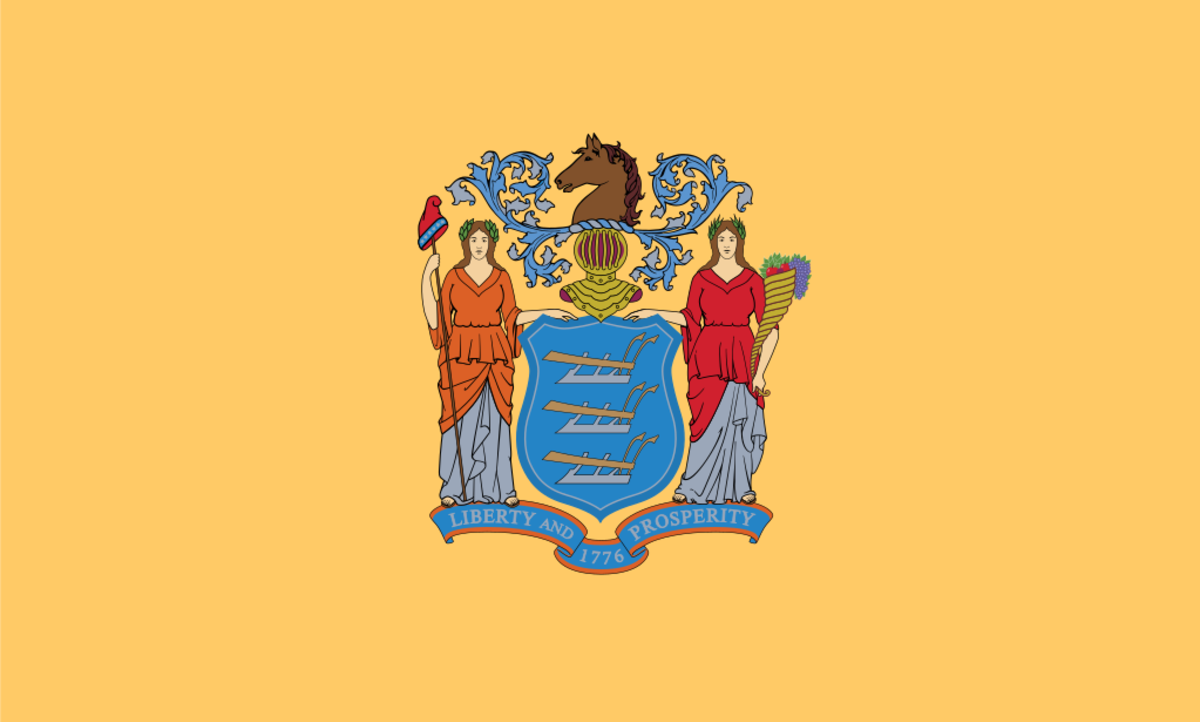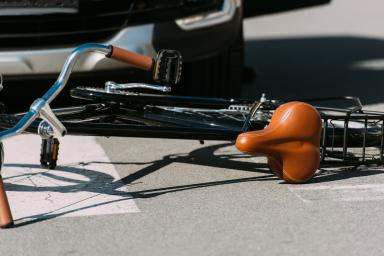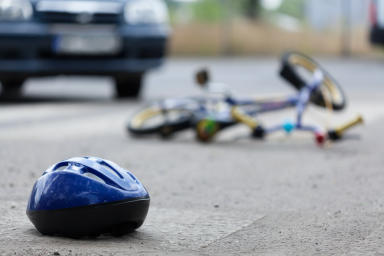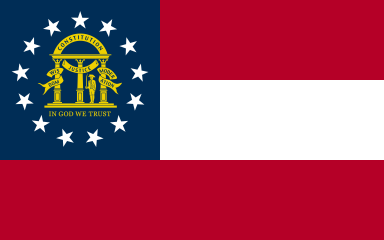New Jersey Bicycle Laws

Biking is becoming increasingly popular in several states, including New Jersey. In Jersey City alone, there were 453 records of bicycles passing through three major intersections in 2021. Hence, laws on the activity, such as the Safe Passing Law, have been implemented to protect bikers.
But action should not end with the mere creation of laws. Bikers in the Garden State should also be aware of these laws, so they serve their purpose, which is to ensure that biking remains safe. Awareness also benefits these cyclists when they are involved in an accident, which can happen more often than one thinks. For instance, in 2022, 17 pedal cyclists in New Jersey were involved in vehicle crashes.
This article will help increase your awareness of New Jersey bicycle laws. It highlights important biking-related legislation, including equipment guidelines and legal resources.
Bicycle Definition and Registration in New Jersey
In New Jersey, a bicycle is defined as a vehicle with two wheels, of which the rear wheel should only be human-powered. It should also have pedals and handlebars. A bike may have saddle-like seats for more than one person. However, these seats—at their lowest adjustable position—should stand at a height of at least 26 inches.
State laws do not explicitly require bicycle registration; however, some local ordinances in New Jersey may mandate it. For instance, in Cranford, the town ordinance requires residents to register their bikes and acquire a license from the police department. This license costs $4 and does not expire. The ordinance was launched to help locals recover their bicycles if they are stolen.
Livingston and East Windsor are other New Jersey towns that require residents to register their bicycles. Similar to Cranford, the police department is in charge of the registration process; however, the police do not release licenses. Instead, it supervises the Bicycle Registration Program, which provides residents with an identifying sticker for their bikes after registration.
New Jersey Bicycle Equipment Guidelines
New Jersey bike laws require bicycles to have these specific pieces of equipment to ensure the safe operation of the vehicle:
A front lamp that emits white light 600 feet from the bike front
A rear lamp that emits red light 600 feet from the bike rear
A red reflector for the rear
An audible device, such as a bell or horn, that can alert other people from as far away as 100 feet. However, it should not be a whistle or a siren
Reachable brakes that will help the vehicle skid or stop on a clean, dry, and level road
While the above equipment is essential, there are other devices that bikers should have, as suggested by the state's bicycling manual, such as:
Fenders to help keep the bicycle clean
Toe clips and clipless pedals, which allow bikers to pedal more efficiently
A rear-view mirror to help observe movement at the back without having to turn around
A bottle cage and bike bag—also known as a bike rack, pannier, or luggage rack—to help carry items, as it is not recommended to hang them from the handlebars or carry them with your hands while biking
New Jersey Bicycle Helmet Law
Another crucial piece of legislation for bikers is the bicycle helmet law. It is worth noting that while some states do not elaborate on helmet usage, New Jersey does. The state also believes that, since the law came into effect, New Jersey’s child cycling fatalities have decreased by 60%.
Specifically, the law requires New Jerseyite bikers aged 17 and below to wear a fastened and fitted safety helmet while riding. This helmet must also meet the Snell Memorial Foundation's 1990 Standard for Protection Headgear to ensure its acceptability, safety, and efficiency. Minors who do not follow this law may incur a $25 to $100 fine, to be paid by their parent or legal guardian.
However, there is an exception to the law: bikers do not have to wear their helmets if they operate on a path that is closed to motor vehicles or is available to bicycles only. Still, they must ensure that those paths are not adjacent to a roadway without a barrier that prevents them from entering that road.
While bike helmet laws are only required for minors, it is still highly recommended for adult bikers to wear them. Bikers may feel more inclined to wear them once they discover that most 2022 pedal cyclist accidents (13 of 17 crashes) in New Jersey involved adults.
Helmets best protect against head injuries or brain damage, which bikers are most vulnerable to during accidents as they are more exposed than motorists. Thus, New Jersey is considering extending the law to adults, so bikers must remain posted for an update on this proposal.
Bicycle Operation Guidelines in New Jersey
Bikers must be willing to abide by the following guidelines to ride their bike in New Jersey legally:
Bikers should ride in the same direction as motor traffic.
Bikers should follow automobile driving laws, like turning left only from a left turn lane or pocket.
Bikers should—as much as possible—keep to the right side of the road.
Bikers should exercise care when passing another vehicle or person.
Bikers should not attach to or hitch on another vehicle.
Bikers should keep both hands on the handlebars and feet on the pedals.
Bikers should not execute bike tricks while on the streets or roadways.
Bikers should not carry more passengers than there are seats on the bicycle.
Bikers should not litter on the road.
Bikers should signal before starting, turning, or stopping.
Although quite comprehensive, these guidelines are just a portion of the bike laws in New Jersey. Counties, cities, or municipalities may create their legislation, such as not allowing bikers on sidewalks. Some city parks, toll roads, freeways, and interstates are also closed to bicycles. Thus, cyclists should also study local ordinances before riding in a particular county or area.
New Jersey Safe Passing Law
The Safe Passing Law in New Jersey, enacted only in 2022, is essential for cyclists as it helps keep them safe. It emphasizes that drivers must be cautious as they share the road with other vulnerable persons: bicyclists, pedestrians, and riders of low-speed electric scooters and bicycles.
Specifically, when motorists or drivers encounter vulnerable people, they must do the following:
Move to another lane so they aren't adjacent to vulnerable persons.
If they cannot move to a lane, they must keep a distance of at least four feet while passing vulnerable persons.
If they cannot pass while maintaining a safe distance, they must slow to 25 miles per hour and be prepared to stop for vulnerable persons.
Drivers who refuse to follow the requirements of the Safe Passing Law are subject to a $500 fine and two motor vehicle penalty points if the violation results in bodily injury. However, if there's no injury, the consequence is a $100 fine.
Is New Jersey a No-Fault State for Bike Accidents?
New Jersey is a no-fault state regarding vehicular accidents, including bike accidents. However, no law explicitly requires cyclists to get insurance.
Thus, when bikers are involved in accidents and must redeem coverage, they can claim compensation from their own or their relatives' auto insurance. Such is possible because auto insurances in New Jersey have stipulations for personal injury protection. This PIP covers medical expenses—but not property damage—when the policy owner is not in the vehicle.
If the biker and their relatives do not have insurance or the injuries are severe, they can claim from the New Jersey State Fund or against the insurance of the party at fault. For the latter, they can only do so if they did not cause more than 50% of the accident, as the state also follows the modified comparative fault system.
How Much Can Someone Sue for a Bicycle Accident in New Jersey?
Before determining how much bikers can sue for an accident in New Jersey, you must know that most insurance policies in the state have lawsuit limitations. They prevent cyclists from suing the at-fault party, much less collecting damages. Thus, you must first determine if you can file a lawsuit.
If you can file a lawsuit, the amount you can sue for will depend on several factors, like the at-fault party's PIP coverage and the economic and noneconomic losses you can prove. Thus, it is best to collect all evidence related to the accident and then consult a bike accident lawyer to assess your claim.
What Is New Jersey's Statute of Limitations for Bicycle Accidents?
The New Jersey statute of limitations for bicycle accidents is two years after the accident. This gives bikers sufficient time to review their policies, evaluate their claims, consult lawyers, and file lawsuits. However, if the biker is a minor, the statute of limitations only begins once they turn 18.
Still, whether you are an adult or a minor-aged biker, you should ensure that you file within the statute of limitations. If you fail to sue within two years after your accident, the court may not even consider your case.
Legal Resources for New Jersey Bicycle Accident Victims
New Jersey Bicycle and Pedestrian Resource Center
The BPRC disseminates information related to bicycling and walking to promote such activities. It has a Laws & Guidance section, which elaborates on bicycle-related legislation while also making it easier for civilians to understand. There is also a Help Desk section, where one can find frequently asked questions about bicycling in New Jersey. If you cannot find your query there, you can email or call BPRC.
New Jersey Bike & Walk Coalition Attorneys on Your Side
The New Jersey Bike & Walk Coalition is dedicated to bicyclists and pedestrians, the road's most vulnerable sectors. They have several projects and resources, including Attorneys on Your Side. It connects you to attorneys specializing in biking and pedestrian accidents, who can be valuable in strengthening your lawsuits, especially with New Jersey's at-fault system and insurance lawsuit limitations.
Legal Services of New Jersey
The LSNJ offers free legal services to low-income New Jerseyans. Specifically, they tackle civil cases, which often include bicycle accident cases. You may call their hotline to receive legal help. There are also legal service offices across New Jersey. LSNJ is connected to LSNJLAWSM, a free legal information resource.
New Jersey State Bar Association Lawyer Referral Service
The State Bar Association's Lawyer Referral Service compiles contact information for the county bar associations in New Jersey. Thus, if you require a lawyer for your bicycle accident lawsuit, you may look for your county bar association's details on the web page.
New Jersey Free Legal Answers
Before contacting a specific lawyer, bikers may also seek answers or advice through the New Jersey Free Legal Answers. It is free, and the lawyers can address many topics, including bicycle accidents. However, if one chooses to proceed with the case, an actual lawyer will be necessary to represent it.
New Jersey Bicycling Manual
Bikers in New Jersey must not only have a copy of the state's bicycling manual, but they must also read it cover-to-cover. It explains some important bicycle-related legislation in the state and discusses biking guidelines and advice, which bikers must consider putting into practice even though they are optional, as those guidelines can protect them during accidents.
Expertise.com StaffAuthor
Step into the world of Expertise.com, your go-to hub for credible insights. We don't take accuracy lightly around here. Our squad of expert reviewers, each a maestro in their field, has given the green light to every single article you'll find. From rigorous fact-checking to meticulous evaluations of service providers, we've got it all covered. So feel free to dive in and explore. The information you'll uncover has been stamped with the seal of approval by our top-notch experts.




